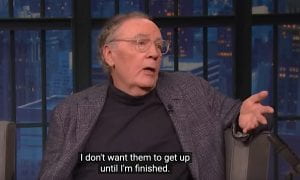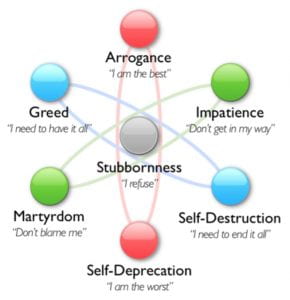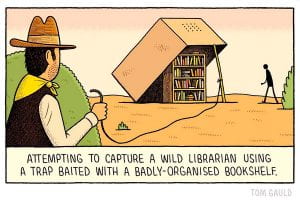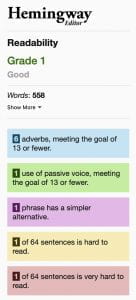 An author’s dilemma – what to do about a character who makes a cameo appearance. Should they leave the plot in a dramatic way? On revisiting a character, I discovered a minor character had made a ghost exit and thought it would be more powerful for the plot if they made a sudden one. So…they were, in thriller-speak, simply eliminated. Oh dear, such is the power of writing. At least one person was left happier with this—me. The abrupt end to their minor part had two advantages. First, it added drama to the plot and second, it put more pressure on the protagonist. The end result is a greater incentive for the reader to turn the page and find out what happens next. Guess which chapter cried out for this re-write? Yes, Chapter One.
An author’s dilemma – what to do about a character who makes a cameo appearance. Should they leave the plot in a dramatic way? On revisiting a character, I discovered a minor character had made a ghost exit and thought it would be more powerful for the plot if they made a sudden one. So…they were, in thriller-speak, simply eliminated. Oh dear, such is the power of writing. At least one person was left happier with this—me. The abrupt end to their minor part had two advantages. First, it added drama to the plot and second, it put more pressure on the protagonist. The end result is a greater incentive for the reader to turn the page and find out what happens next. Guess which chapter cried out for this re-write? Yes, Chapter One.
Uncategorized
Tell it so they won’t want to leave
James Patterson is one of the world’s most successful authors, having sold roughly 450 million books – thrillers, non-fiction and romance novels. He was the best-selling author of adult fiction in the UK in 2020, according to Nielsen Book Research, and was recently announced as the most-borrowed author from British libraries for the 14th year in a row [source: BBC].
In a recent interview on Late Night with Seth Meyers, James Patterson says, “I always imagine someone’s sitting across from me. I’m telling them a story and I don’t want them to get up until I’m finished.” Great advice from the master and I hope each chapter I write keeps my imaginary reader in their seat.

5 Key Elements for a Thriller
While hosting workshops in the USA I found that the most popular ones were those with a catchy title, such as “10 Top Tips for Technology Teachers.” Hence the title for this post. Catchy, huh? Well, almost. The danger is that my top 5 tips might not be your ones. The following are from an article in masterclass.com and I will personalise a few to give my perspective. Let’s get into this:
- Make your main character compelling. In the thriller genre—just like in real life—a conflict is rarely as simple as “good guy vs. bad guy.” Good thrillers often feature protagonists that are flawed and complex…Readers relate to imperfect heroes, and having a main character with flaws will increase the tension and stakes of your story. Having a deep, three-dimensional main character is an essential ingredient of a successful thriller. [I totally agree. Of most importance is to allow the flaws in your main character to enable them to change/flip 180 degrees/grow into the villas. Mine did this by mistake. He started out as an ageing spy, but…oops, can’t give it away that easily!] Can you find the main character here below? Yes, of course you can, but is he/she compelling enough to stand out among the others?
 More about character flaws can be found here.
More about character flaws can be found here.

- The opening scene has plenty of action. Readers MUST be on the edge of their seats from the very first page. The opening scene of a thriller novel should introduce the crime, conflict, or stakes as quickly as possible. The best thrillers hook their readers with instant action, then fill in the necessary character and storyline information later. [Comment: avoid fluff at the start. Action, action, action. Some suggest that a thriller should start at the point of most conflict, then unpack it in the following chapters.]
- Create an interesting villain. Even your antagonist is unforgivable, their motivations should be rooted in a relatable desire or emotion. In other words, they should be motivated by their own twisted, internal logic (e.g. The Silence of the Lambs its subsequent sequels, readers learn through flashbacks that Dr. Hannibal Lecter witnessed the murder of his sister when he was young. Therefore, Dr. Lecter is more than just a psychopathic serial killer—he is a person whose evil actions stem from a heartbreaking trauma). Readers are more likely to be engaged in your villain’s story and character development if they can recognize seeds of themselves in your antagonist.
- Build obstacles for your protagonist. If there’s one thing that all bestselling authors of thrillers are good at, it’s putting their protagonist in harm’s way. Your main character should experience heartbreak, trauma, and anxiety throughout the book. Sometimes, the most effective obstacle is a ticking clock or strict time limit to complete their task. Obstacles will also increase the narrative satisfaction of the end of the book, when your protagonist finally overcomes the hurdles and triumphs over adversity. [Yes, have a chase that is race against time.]
- Add plenty of plot twists and turning points. More so than any other genre, thriller novel writing requires the story to contain an abundance of plot twists, turning points, and cliffhangers. If you’re experiencing writer’s block when writing a scene, ask yourself what a reader might expect to happen next. How can you subvert those expectations? If a scene feels uneventful, think about what plot element or character you can introduce to raise the stakes or create a dilemma for your protagonist. Plot twists will ensure that your thriller is a page-turner and make it impossible for your reader to put it down. [Right on! In my last thriller I was writing a new chapter when it suddenly took a turn that I never expected.]
Plans for the day?
It’s a common question – “What are your plans for the day?” A social greeting question, and one that we almost expect. It’s the question I get asked when I sit to have my hair cut, or while talking with my children. And, it’s an ideal question to drop into casual conversation in a thriller; a sure way to put the reader at ease, before winding up the tension with an unexpected reply. Here’s what I mean when I write that innocuous question into my new thriller;
—
The black BMW limo glides west onto the B44, then loops back to follow the Theodor-Stern-Kai motorway, parallel to the River Main. As they slow for the Friedensbrücke bridge the driver glances in his mirror.
“Sir, if I may ask, what have you got planned for the day?”
Michael is silent, his thoughts caught by dazzling sunlight on the water. Across the bridge, he gazes at the rising commercial landscape north of the round Westhafen Tower and finally speaks as their destination comes into view.
“I plan to change the world.” [new thriller, Ch 2]
—
Experience Counts
 Many an author is grateful for their world experiences, whether through career or travel. When I was at university I landed a rather unusual job working with a crew who ran the dry dock at Devonport, across the harbour from Auckland, New Zealand’s largest city. My job was to help work the pumps, grease the gears and help shore up the boats as they settled on the floor of the dry dock as the water was pumped out. I was about nineteen years of age at the time and never thought I would be able to use the experience in a novel. One day, while working on a chapter in my latest thriller, I realised how valuable my time in the dry dock was. It helped bring a chapter to life and give it authenticity—a measure of detail that few people would have.
Many an author is grateful for their world experiences, whether through career or travel. When I was at university I landed a rather unusual job working with a crew who ran the dry dock at Devonport, across the harbour from Auckland, New Zealand’s largest city. My job was to help work the pumps, grease the gears and help shore up the boats as they settled on the floor of the dry dock as the water was pumped out. I was about nineteen years of age at the time and never thought I would be able to use the experience in a novel. One day, while working on a chapter in my latest thriller, I realised how valuable my time in the dry dock was. It helped bring a chapter to life and give it authenticity—a measure of detail that few people would have.
I guess that writing is the sum of experience and observation? I am forever grateful for this part  time, and very humble, work in the naval dockyard. The crew I worked with gave me rich memories that came back to life when I was struggling for ideas for my latest novel. All experience, whether a struggle or triumph, does count. It acts like building blocks for your mind, allowing original and creative writing to flow.
time, and very humble, work in the naval dockyard. The crew I worked with gave me rich memories that came back to life when I was struggling for ideas for my latest novel. All experience, whether a struggle or triumph, does count. It acts like building blocks for your mind, allowing original and creative writing to flow.
Closer to the Gates of Hell
We had a friend staying with us recently who told us about his fear of driving through a car wash. He had a bad childhood experience which surfaces when he has to lock the car doors and look out at the swishing of water and rollers. In my new thriller, the crew of a submarine face their greatest fear—the fear of breaking up at depth; a depth that is a secret known only to a few. If you ask a submarine captain how deep they can go, the answer is always “deep enough.” If you ask the engineers who designed it, they will say “a little deeper than the specs.” Can you imagine the horror of being in a steel tube that implodes underwater; the sudden implosion that ends life in an instant. Worse is the gradual squeezing of a hull under pressure; a tightrope of fear that envelops sailors and drags them closer to the gates of hell.
“A jolt shot through the hull, pinging like a hammer on steel. The sailors jumped. Some crossed themselves, while others kissed their crosses. Every hand on its controls was a fist of white knuckles, clinging to their fears. Each foot deeper brought them closer to the gates of eternity. The hull had to give. One false move and it would be over, and Hammerhead would join the long list of subs lost at sea with all hands.” [new thriller, pg 99]

Keep it Real
 Here’s the best advice that helps my writing: I need to review it regularly: “Be myself and be authentic. Don’t try to put on a voice that isn’t my own. Keep my characters genuine and real. Readers will pick up if I’m lying, and they will put my book down. Keep my writing simple and keep it honest.”
Here’s the best advice that helps my writing: I need to review it regularly: “Be myself and be authentic. Don’t try to put on a voice that isn’t my own. Keep my characters genuine and real. Readers will pick up if I’m lying, and they will put my book down. Keep my writing simple and keep it honest.”
I have a trusted reader and, about a week ago, sent her a chapter from my new book to review. Her comment was, “Your (female) character is not real. She would not think or act like that.” When I re-read the chapter, I had to agree. The main problem was that I was being over-descriptive and it ruined the authenticity of the setting. I was over-eager in my writing and, by adding more words, I destroyed it.
Big Brother
My new thriller leans upon a short video presented by Apple when they launched the MacIntosh computer. The concept is far from new, but dramatic in presenting Big Brother in black and white, then shattering the conformity when an athlete hurls a hammer into the screen. Let’s take a minute to view this:
Big Brother is a fictional character and symbol in George Orwell‘s dystopian 1949 novel Nineteen Eighty-Four. He is ostensibly the leader of Oceania, a totalitarian state wherein the ruling party, Ingsoc, wields total power “for its own sake” over the inhabitants. In the society that Orwell describes, every citizen is under constant surveillance by the authorities. In modern culture, the term “Big Brother” has entered the lexicon as a synonym for abuse of government power, particularly in respect to civil liberties, often specifically related to mass surveillance. (source: Wikipedia). In my new novel, a group of talented underwater experts plan to turn the tide on a contemporary Big Brother through the most audacious heist ever.
Oh no, not another book cartoon!

Editing 101
This may, or may not, help budding writers: What is the best way to edit your manuscript? Here’s my take, based on the experience of two novels:
Step 1: Finish your Manuscript, then throw it aside for a few weeks. Return to it and read it through, noting obvious errors. Each time you step away from your manuscript you come back to it from a fresh perspective. Note: your first draft is always (yes, always) inadequate.
Step 2: Use an Online Editor. I like using prowritingaid or, more recently, grammarly. Both of these help identify issues such as repeated phrases, over-use of adverbs, sentence lengths, etc. I don’t recommend paying a subscription service, unless for a short period (e.g. a month) in order to check your entire manuscript. A feature I liked as the one where (in prowritingaid) where you can compare your style to another author. You may not be a Hemingway fan, but I like the simplicity of checking chapters in the Hemingway app. Here’s an example from my new novel (with the Hemingway result alongside);
 Nikolai had a glass in hand and a faraway look. The lighting cast deep shadows in the folds of his face. He seemed angry, or drunk, or both.
Nikolai had a glass in hand and a faraway look. The lighting cast deep shadows in the folds of his face. He seemed angry, or drunk, or both.Step 3: Join a Writing Circle. This is, I’m my humble opinion, the MOST important step. Get a writing-circle to review your work. This circle should consist of other writers or readers in your genre who will give constructive advice and not hold back on any criticism. For example, one of my fellow writers gave such good feedback that I rearranged my chapter order, changed the ending, and built a more authentic and powerful plot. And I was able to reciprocate and also offer him advice on his new book.
Step 4: Find a Professional Editor. There are many people who have experience in the publishing trade who are happy to review your work. I used one to check my submission trio – the Query Letter, Synopsis, and first three chapters. Their fixes and recommendations were so good that I asked them to check over other key chapters in my novel. What I especially liked was an experienced editor’s positive encouragement with, “I have a good feeling about this book.” Now, I just need a literary agent to agree.
Final Note: Don’t let any of the above steps change your own writing style. Stay true to who you are as a writer and use the steps to improve your style, rather than force it into someone else’s.
